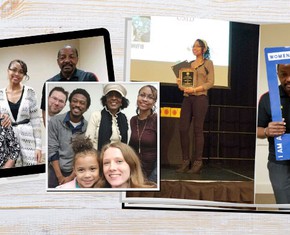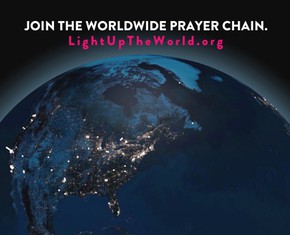The views expressed in our content reflect individual perspectives and do not represent the authoritative views of the Baha'i Faith.
A couple of nights ago, at a meeting with a few other Baha’is, we reflected on our efforts to contribute to the improvement of the spiritual and social conditions in our neighborhood.
We talked about how we can meet new people, deepen friendships, and partner with other organizations that have similar goals. We listed things we wanted to learn about, and things we had learned. The conversation focused on further growing our neighborhood community-building program and encouraging people, even those newly acquainted with it, to feel a sense of joint ownership. In our meeting there was a special concern for integrating a pattern of life rather than contributing in short sporadic effort.
Baha’i community-building efforts often refer to four specific areas of activity:
- For young children, Baha’is conduct free classes aimed at fostering the growth of the spiritual qualities latent within us and developing the character of the youngest amongst us. Thus, the spiritual and moral education of young ones is naturally a focus.
- For junior youth, or kids ages 11 through 14, Baha’is create spaces aimed at strengthening powers of expression, enhancing spiritual perception, and bolstering intellectual capacity. The Junior Youth Spiritual Empowerment Program leverages art, the natural potential of this age group, and the strengths of a community to empower young people to internalize the role of being a capable protagonist in their communities.
- Baha’is also hold devotionals or prayer gatherings—places where people of all different Faiths and backgrounds can come together to pray and read sacred writings—as a way of contributing to the well-being of a community.
- Baha’i study circles make up the final component of community development, where a diverse range of people come together to study a curriculum that encourages conversation focused on serving humanity and deepening on spiritual and moral questions. Through joining a study circle, people can also prepare and practice engaging in teaching a children’s class, helping organize and guide a group of junior youth, or hosting a devotional.
The power these four related activities have to create a pattern of life within a community has shown itself time and time again across the world. The awareness raised through engaging these programs, the empowerment many have felt, and the inspiration folks have drawn from the Baha’i writings studied in these spaces have sometimes led to even more complex forms of social action. As a result, people have arisen, to address profound issues afflicting their communities.

At our meeting, ass we discussed details, someone asked “How are we really connecting with the people we see most regularly in our lives? Are we developing the relationships we have with our neighbors, for example?”
My mind started spiraling into assessment mode. I started thinking about how so many of my neighbors are still strangers, and how easily my conversations tend to stay in a superficial or shallow place.
As I reflected, a few quotes from the Baha’i teachings came to mind, reminding me to reject this very narrow view of self that our culture often promotes:
Every imperfect soul is self-centered and thinketh only of his own good. But as his thoughts expand a little he will begin to think of the welfare and comfort of his family. If his ideas still more widen, his concern will be the felicity of his fellow citizens; and if still they widen, he will be thinking of the glory of his land and of his race. But when ideas and views reach the utmost degree of expansion and attain the stage of perfection, then will he be interested in the exaltation of humankind. – Abdu’l-Baha, Selections from the Writings of Abdu’l-Baha, p. 69.
While thinking about transforming the nature of the friendships I already have, this passage felt relevant:
Create relationships that nothing can shake; form an assembly that nothing can break up; have a mind that never ceases acquiring riches that nothing can destroy. If love did not exist, what of reality would remain? It is the fire of the love of God which renders man superior to the animal. Strengthen this superior force through which is attained all progress of the world. – Abdu’l-Baha, Divine Philosophy, p. 110.
At the end of our meeting, the conversation turned into a beautiful plan to better develop and grow these programs, which have become so enriching for many communities across the world. My mind still lingers on this question of how I can infuse each and every single interaction in my life with love for others.
















Comments
Sign in or create an account
Continue with Googleor